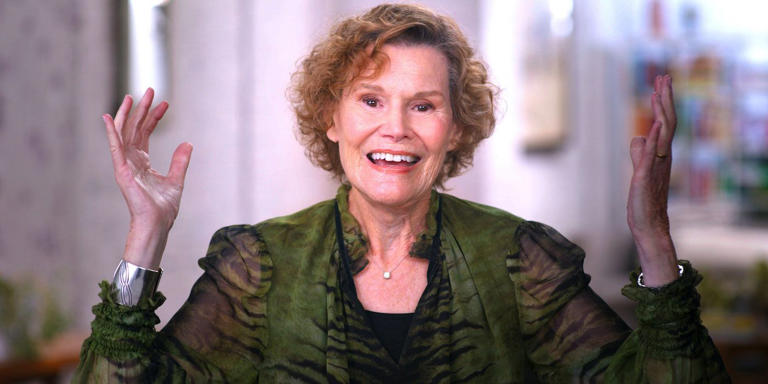A few months ago, I was asked if I was a Judy Blume fan. Before that, a friend asked me if I had read the Judy Blume book, “Are You There God? It’s Me, Margaret,” after viewing the film trailer. The book was released decades ago and is also the upcoming film’s title in late April. I wonder if anyone can imagine how it feels to know that this is a part of history that I missed out on growing up in deep South Texas. After viewing the documentary Judy Blume Forever, learning about her life’s work, the impact on so many readers, and her personal life, I understand that I lacked so much knowledge that would have been helpful. I would have written to her as a fan in my youth, although not as a child. There was so much not discussed in conservative households back then, so who was a minor or young adult to confide in? The story of one reader who corresponded with Judy Blume about her personal life and what Blume shared had me in tears more than once. I highly recommend viewing the film to learn about this iconic American author, regardless of your knowledge about her and her books. There is something so special about hearing someone talk about their life as they are now in their 80s.
Directed by Davina Pardo and Leah Wolchok, Judy Blume Forever will provide great memories for long-term fans. Still, it will also inform the audience who did not have the same experiences in their youth about who this author is as a woman, a writer, and one who pushed back against the banning of books, then and now. Born in New Jersey, she attended a girls’ high school and went on to complete her college degree. She shared how young ladies back then were to be on the lookout for a future husband (or something of the like). I, too, remember hearing another young woman on the university campus share being told something similar – even a decade or two later. She became a young housewife, had two children, and began writing stories for them. Although her original works may not have been published, it was not long before a publisher saw something in her work to develop, helped her along, and started a career. I enjoyed hearing her share how others did not seem to take her seriously and how she pushed through. She has 25 books with over 80 million copies sold (also translated into many languages).
Cinematographers Jenni Morello and Emily Topper capture Blume and her family in beautiful settings, as well as those interviews with Molly Ringwald, Samantha Bee, and Lena Dunham, to name a few, that add to the story with their perspectives and experiences. Blume’s narration keeps the audience engaged. Watching her go through archives of letters she received decades before is very touching, especially viewing the interviews with a couple of them now as adults. Of note, there are beautiful visuals by animator Angelique Georges and collage artists Andrew Griffin and Martin O’Neill. The filmmakers also use archival footage for points in time of Blume’s life that impacted her, as well as lovely black and white photographs of her classmates and friends. Composer Lauren Culjack (Kotomi) provides the music for the film. The film streams globally on Prime Video as of Friday, April 21st.
Source: Amazon Studios
